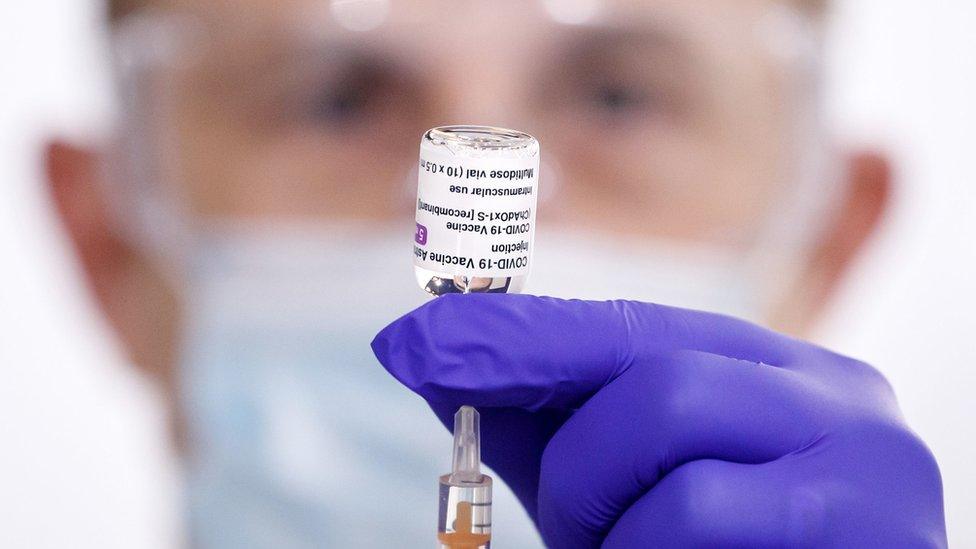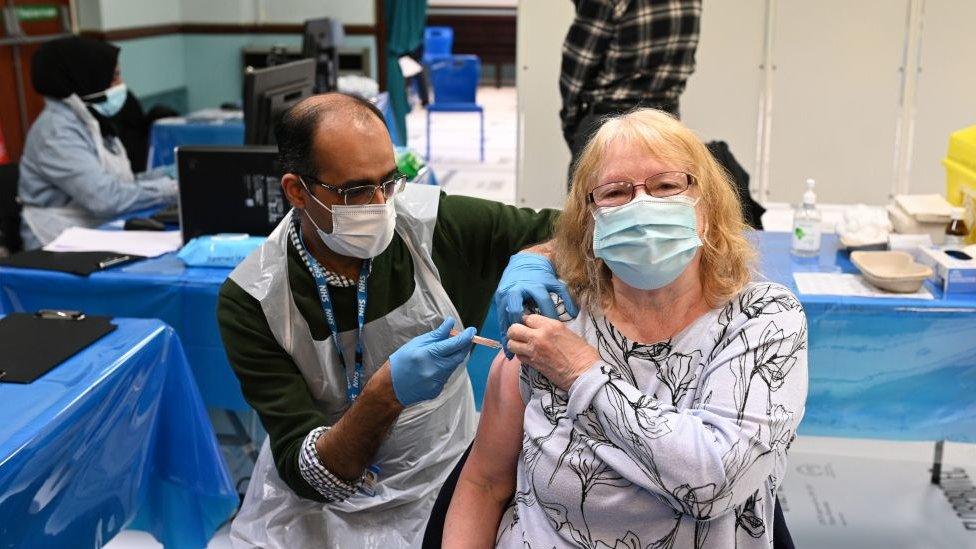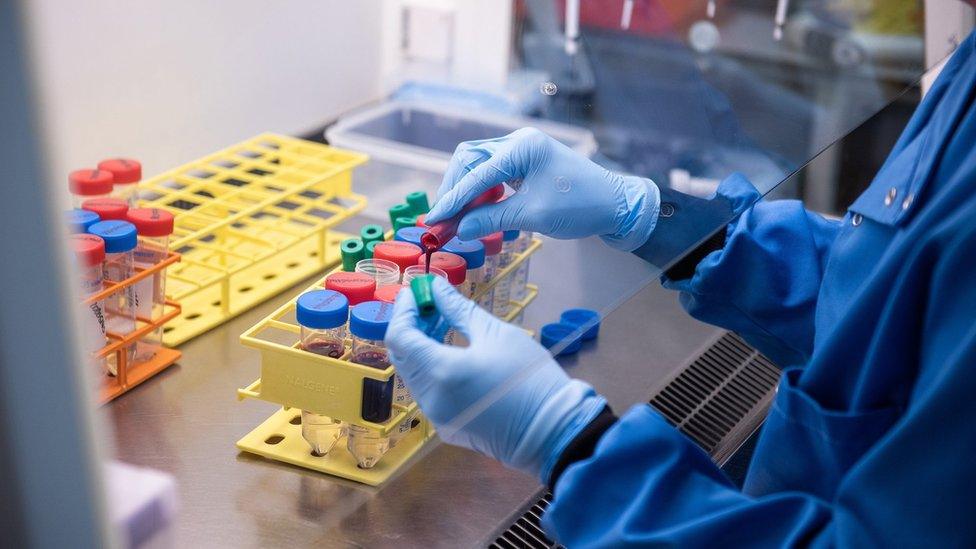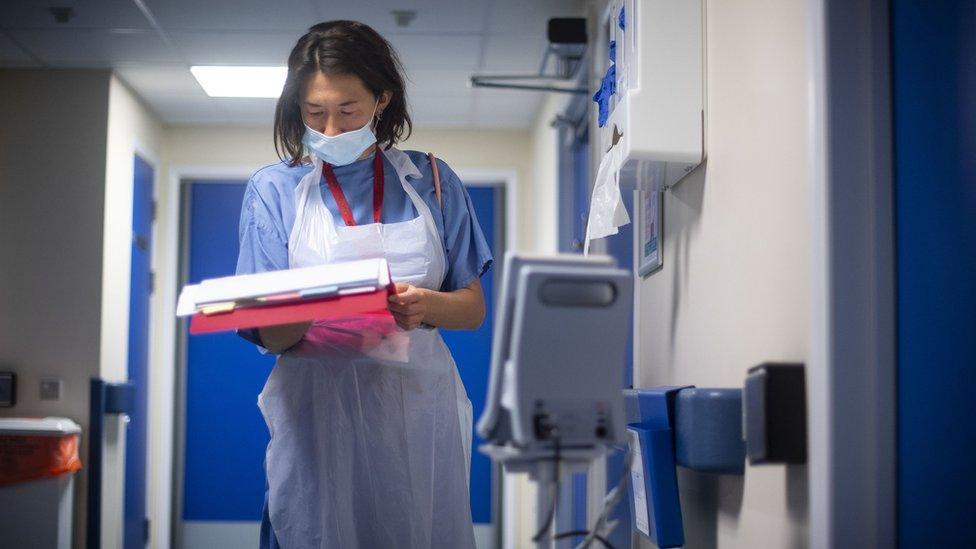Covid: Why we should not rush to judgement on Oxford jab
- Published

News the Oxford-AstraZeneca vaccine has only a limited effect against the South African variant of coronavirus has caused understandable concern.
It is the vaccine many people in the UK are being given.
And the news comes just days after scientists warned the variant may be circulating in this country.
But what actually is the significance of this?
Mutation seems to make all vaccines less effective
Viruses mutate - so what is happening is not surprising. In fact, it can be expected to continue.
As more people build up immunity - either through vaccination or exposure to the virus - there is going to be selection pressure on the virus, favouring changes that allow it to escape human defences.
The changes seen in South Africa are an example of this. And it means all the vaccines produced so far are likely to work less well against this variant.
Some of the trials for the Novavax and Janssen vaccines, which reported last month, were in South Africa when the variant was circulating widely.
They showed the vaccines worked less well against it than other versions of the virus. Although, they were still about 60% effective at stopping people developing symptoms.

What has caused particular concern with these Oxford-AstraZeneca vaccine results, however, is the vaccine appeared to have just a "minimal" impact, maybe only around 22%.
The finding is based on a small study, involving fewer than 2,000 people, with an average age of just over 30.
So there can be only limited confidence in it. But it clearly raises very real questions.
However, there is hope the vaccine would still be very effective at preventing serious illness and hospital admissions.
What does this mean for people called for jabs now?
The most important thing to remember is the Oxford-AstraZeneca vaccine remains highly effective against the type of virus dominant in the UK.
And the same is true for the other vaccine being used in the UK, produced by Pfizer-BioNTech.
There have been fewer than 150 cases of the South African variant detected in the UK.
Admittedly, there are bound to be more out there - only 5-10% of positive cases are checked for mutations as requires extensive lab work and so cannot be done for every case.
But there are no signs it is widespread and extra testing has been ordered in the places where there are signs the variant may be spreading to try to contain it.
Prof Jonathan Van Tam, England's deputy chief medical officer, believes this will be effective in the short-term, mainly because the South African variant does not have an advantage over the more transmissible UK variant at the moment.
What does this mean for lockdown?
The developments once again illustrate the pandemic is not going to end with a big bang. It is going to be incremental.
The key mutation in the South African variant that helps it evade immunity - E484 - has already been replicated in the virus circulating in the UK.
But there is nothing to suggest this is anything more than a few isolated cases - it has been detected in Liverpool and Bristol.
Nonetheless it is a strong signal this is the route the virus will go down as immunity builds in the population.
The good news is that it is relatively easy to tweak the vaccines to make them more effectiv.
Last week, the Oxford-AstraZeneca team said if necessary it could be ready for the rollout of a new vaccine in a matter of months.
The idea would be to offer repeat, booster vaccinations much as we do each year for the flu.

Understandably, questions are now being asked about what this means for lockdown and restrictions.
Some say tough restrictions need to continue because of the threat of mutations.
But UK chief medical adviser Prof Chris Whitty has always been clear we ultimately have to learn to live with the virus.
It will remain a "residual threat" for quite some time, he says, arguing the goal is to "de-risk" it to the point where the level of serious illness and death becomes tolerable and the pressure on the NHS is eased.
So, given the vaccines remain highly effective against the dominant form of virus circulating in the UK, the opportunity for a major relaxation of the rules should still present itself.
The significance of the latest news may be less than the scary headlines suggest.

LOOK-UP TOOL: How many cases in your area?
LOCKDOWN RULES: What are they and when will they end?
OXFORD JAB: What is the Oxford-AstraZeneca vaccine?
VACCINE: When will I get the jab?
NEW VARIANTS: How worried should we be?

Related topics
- Published11 November 2020

- Published5 July 2023

- Published5 July 2022

- Published30 April 2020

